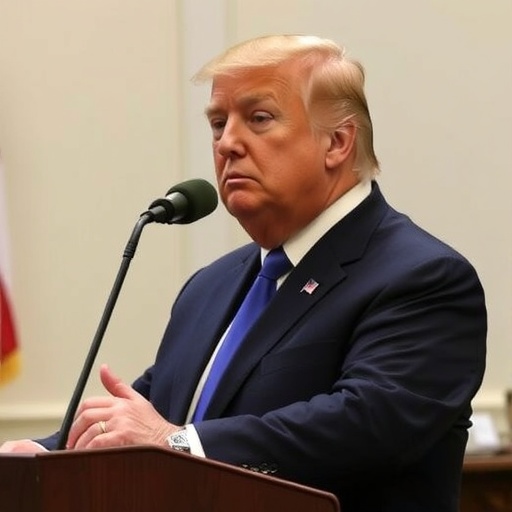Trump Commutes George Santos’ Seven-Year Fraud Sentence in Bold Political Move
In a stunning late-night announcement that has sent shockwaves through Washington, President Donald Trump has commuted the seven-year prison sentence of former U.S. Representative George Santos, freeing the disgraced politician from federal custody amid ongoing debates over fraud and identity theft convictions. Santos, who resigned in disgrace in 2023 after a cascade of ethical scandals, walked out of a low-security prison in Pennsylvania just hours after the commutation was issued, marking yet another controversial use of presidential clemency by Trump.
The decision, detailed in an official White House statement released early Friday morning, spares Santos from serving the remainder of his term but leaves his criminal record intact. Notably, the order does not require him to pay any restitution to victims defrauded in schemes totaling over $500,000. This move comes as Trump campaigns vigorously for re-election, positioning it as an act of mercy for a “persecuted patriot” who faced what he called a “witch hunt” by political opponents.
Santos, a Republican who briefly represented New York’s 3rd Congressional District, was convicted in early 2024 on multiple counts of wire fraud, money laundering, and identity theft related to campaign finance misdeeds and personal deceptions. His release raises immediate questions about accountability in politics and the boundaries of executive power, with critics decrying it as favoritism toward a fellow GOP figure.
Santos’ Downfall: From Campaign Lies to Federal Indictment
George Santos’ meteoric rise and spectacular fall began in November 2022, when he shocked the political world by flipping a Democratic-leaning Long Island seat to Republican control. But the victory was short-lived. Within weeks, investigative reports from outlets like The New York Times exposed a web of fabrications: Santos had lied about his education (claiming degrees from Baruch College and NYU that didn’t exist), his employment history (falsely stating he worked at Goldman Sachs and Citigroup), and even his Jewish heritage (inventing a family connection to Holocaust survivors).
These personal deceptions quickly escalated into criminal allegations. Federal prosecutors in the Eastern District of New York charged Santos in May 2023 with 13 counts, including fraud against campaign donors, unauthorized use of donors’ credit cards for personal expenses, and identity theft by stealing a disabled veteran’s identity to inflate his animal rescue charity’s fundraising. Court documents revealed Santos had funneled over $100,000 in illicit funds into his campaign, using tactics like falsely reporting income from a nonexistent company.
By December 2023, Santos faced expulsion from the House of Representatives in a bipartisan vote of 311-114, becoming only the sixth member in history to be ousted without a conviction. He pleaded guilty in March 2024 to seven felony counts, including conspiracy to commit wire fraud and aggravated identity theft, which carried a mandatory two-year minimum sentence. U.S. District Judge Joanna Seybert sentenced him to seven years in July 2024, citing the “brazen” nature of his crimes. “Mr. Santos exploited the trust of voters and donors alike,” Seybert stated during sentencing. “This was not a momentary lapse but a calculated scheme.”
Statistics from the Federal Election Commission underscore the scale: Santos’ campaign raised $800,000 in 2022, with at least 20% tied to fraudulent activities. Victims included elderly donors who believed contributions would support veteran causes, only to learn funds bought luxury goods for Santos.
Trump’s Clemency Pattern: Loyalty Over Legal Norms?
President Trump‘s decision to grant this commutation fits a broader pattern of using his pardon and commutation powers to shield allies from accountability. During his first term, Trump issued 237 acts of clemency, including pardons for figures like Michael Flynn, his former national security adviser convicted of lying to the FBI, and Steve Bannon, charged with fraud in a border wall scheme. More recently, in his current term, Trump commuted sentences for over a dozen January 6 riot participants, framing them as victims of political persecution.
Legal experts note that commutations differ from pardons: the former shortens or ends a sentence without forgiving the underlying crime, preserving the conviction on one’s record. In Santos’ case, the White House justified the action by highlighting his “remorse” and claims of prosecutorial overreach. A spokesperson for Trump told reporters, “George Santos was targeted by the deep state because he stood with President Trump. This commutation restores justice for a fighter against the radical left.”
However, this isn’t Trump‘s first brush with Santos. In 2023, amid expulsion talks, Trump publicly defended him on Truth Social, calling the proceedings a “disgraceful Democrat hit job.” Santos, in turn, endorsed Trump‘s 2024 bid early, donating $5,000 to his campaign before his guilty plea. Political analysts suggest the commutation could be a signal to loyalists: toe the line, and clemency awaits.
According to data from the Department of Justice, Trump has used clemency at a rate 50% higher than his predecessors in similar periods, often bypassing the standard Office of the Pardon Attorney review process. Critics, including the Brennan Center for Justice, argue this erodes democratic norms, with one report stating, “When presidents commute sentences for political gain, it undermines public faith in the rule of law.”
Outrage Erupts: Democrats and Victims Demand Accountability
The commutation has ignited a firestorm of criticism from Democrats and victims’ advocates. House Minority Leader Hakeem Jeffries (D-NY), whose district neighbors Santos’, called it “a slap in the face to every American who believes in honest government.” In a fiery floor speech, Jeffries recounted how Santos’ fraud schemes preyed on working-class families in Queens and Nassau County, vowing to push legislation limiting presidential clemency powers.
Senator Chuck Schumer (D-NY) echoed this, tweeting, “Trump‘s commutation of George Santos’ sentence for fraud and identity theft is the latest example of GOP hypocrisy. Victims deserve restitution, not excuses.” Advocacy groups like the National Center for Victims of Crime expressed dismay over the lack of restitution, estimating losses at $550,000 across 50+ victims. One anonymous donor, a 72-year-old retiree from Long Island, told CNN, “I gave $1,000 thinking it helped animals. Now Santos is free, and I get nothing back. It’s infuriating.”
Even some Republicans distanced themselves. Former House Speaker Kevin McCarthy, who once backed Santos’ expulsion, said in a statement, “While I respect the president’s authority, this decision overlooks the seriousness of identity theft and fraud. Accountability must come first.” Polling from Quinnipiac shows 62% of Americans disapprove of the commutation, with independents particularly vocal about perceived favoritism.
Legal challenges loom: The ACLU announced plans to file a lawsuit questioning the commutation‘s validity, arguing it violates due process by ignoring victim impact statements submitted during sentencing. “This isn’t mercy; it’s impunity,” ACLU attorney Lee Gelernt said.
Santos Steps into Uncertain Freedom: Political Comeback or Exile?
Now a free man at 36, George Santos faces a landscape fraught with opportunities and obstacles. Barred from running for federal office until 2028 due to his conviction, he hinted at a podcast appearance Thursday night—recorded just before release—that he might pursue local politics or media ventures. “I’m grateful to President Trump for this second chance,” Santos said. “The fraud charges were exaggerated, but I’ve learned my lesson.”
His immediate plans include reuniting with family in New York and undergoing mandatory supervised release, which includes restrictions on internet use and financial dealings to prevent further identity theft. Experts predict challenges in employment; background checks will flag his record, limiting options in finance or public service—fields where he previously exaggerated credentials.
Yet, Santos’ notoriety could fuel a media career. He’s already in talks with conservative outlets like Newsmax for a contributor role, leveraging his story of redemption. “Santos embodies the Trump era: flawed but unbowed,” said GOP strategist Alex Conant. Public reaction is mixed; a GoFundMe for his “reentry support” has raised $20,000 from supporters, while online petitions demanding reversal of the commutation have garnered 100,000 signatures.
Broader implications ripple through the political sphere. This commutation may embolden other convicted allies of Trump, like Paul Manafort or Roger Stone, to seek similar relief. As midterm elections approach, Democrats plan to weaponize the story in ads targeting GOP vulnerabilities on ethics. For victims, advocacy intensifies: Groups are lobbying Congress for a “Santos Restitution Act” to mandate payments in commuted cases.
Looking ahead, the saga underscores tensions in American justice under polarized leadership. Will Trump‘s clemency streak reshape norms, or spark reforms? As Santos navigates his post-prison life, the nation watches whether this commutation marks the end of one scandal or the birth of another chapter in political intrigue.








